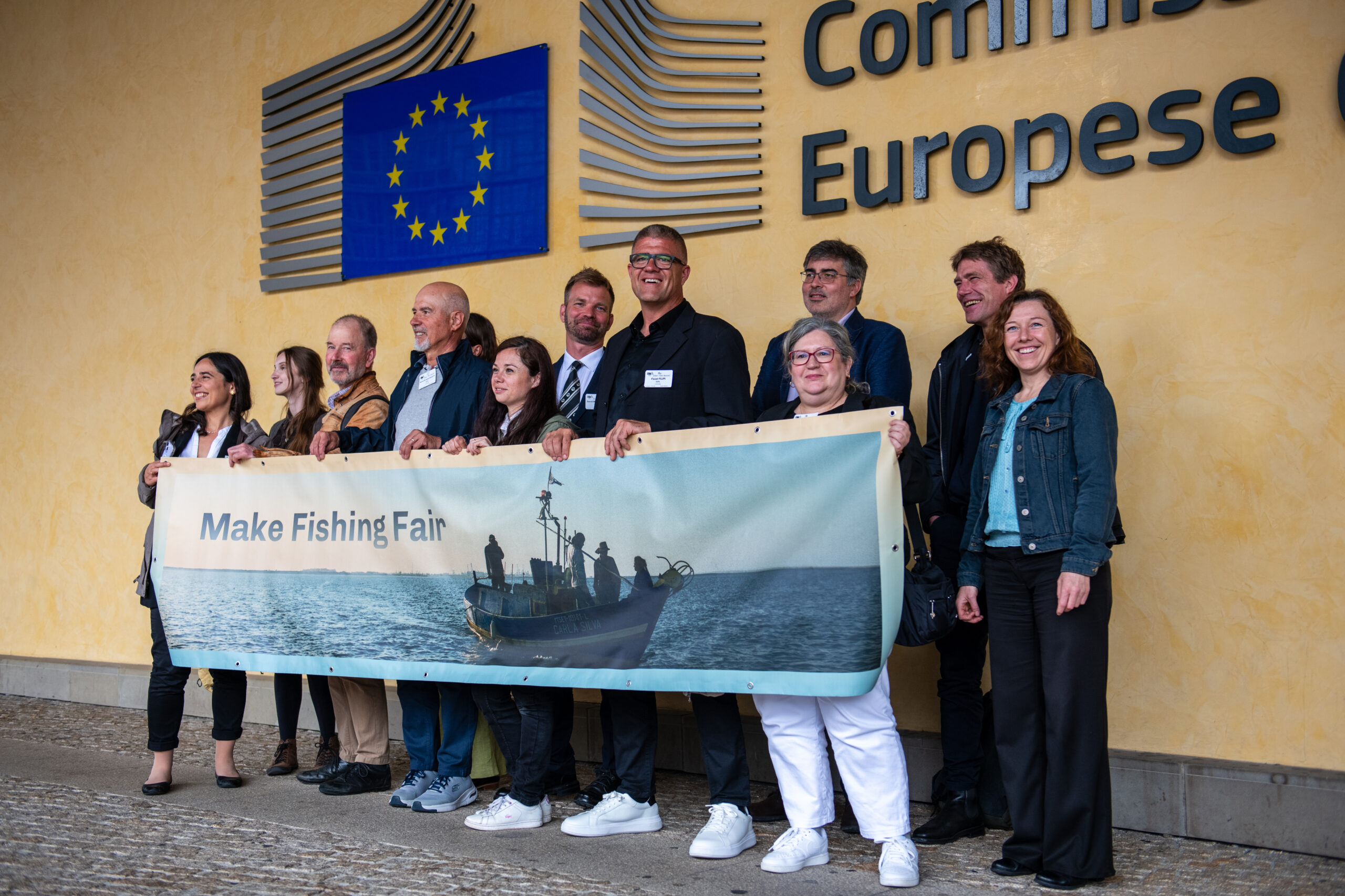“Make Fishing Fair” and turn around a declining sector, say thousands of European fishers

Thousands of small-scale, low-impact fishers across Europe have called for an end to unfair subsidies and quotas driving overfishing, high rates of bycatch, discard and emissions, resulting in poor conditions for the sector. If small-scale, low-impact fishers were incentivised instead, they say, it could support more jobs, boost nature and halt the sector’s decline.
An open letter, signed by 37 organisations, delivered to Virginijus Sinkevičius, Commissioner for the Environment, Oceans & Fisheries, outlines the actions the Commission and Member States should take, recognising that low-impact, small-scale fishers are key to better managing stocks and protecting the sea, while generating social benefits. This contributes directly to coastal communities and local livelihoods, unlike industrial, large-scale fishing.
A delegation of small-scale fishers, NGOs and outdoor company Patagonia, who delivered the letter in Brussels, emphasise that allocating fishing opportunities based on social and environmental criteria, rather than catch volume and history, would help level what is currently a “distorted sea”, favouring large-scale, high-impact interests. Transparency in allocating fishing quotas, a public resource, is also needed. Such measures are already set out in the Common Fisheries Policy but are not well-implemented.
“The inadequate enforcement of Article 17 of the Common Fisheries Policy has not only disadvantaged small-scale, low-impact fishers but has also led to environmental degradation. The lack of transparency in funding distribution has perpetuated practices that harm marine ecosystems, sidelining those who prioritize responsible fishing,” says David Lange, Director of the Danish small-scale fishing organisation, FSK-PO.
“Small-scale low impact fishing activities are part of the solution but they are the forgotten and marginalised fleet”, says Marta Cavallé, Low Impact Fishers of Europe’s Executive Secretary. “By giving those who fish more sustainably the rights to fish, rather than those who fish more intensively, fisheries managers could transform the way we fish in Europe and achieve fair fisheries, healthy seas and vibrant communities. This is the crux of Article 17 of the Common Fisheries Policy. It’s a potential game changer, if implemented fully.”
The European Commission is expected to prioritise making the quota process transparent in its next mandate, as a result of its evaluation of the Common Fisheries Policy. Guidance to Member States on using socio-economic and environmental criteria when allocating fishing opportunities will be part of this process.
The “Make Fishing Fair” action comes at a time when agro-industrial and large-scale fishing lobbies are pushing back on environmental policies and nature restoration as ‘anti-business’. Making Fishing Fair is about treating fishers, the marine environment and wider society fairly, and offers a more constructive approach.
“Rather than pitting fishing jobs against the marine protection needed to sustain fish populations, small-scale, low-impact fishers show that they can support both livelihoods and the marine environment. The two are not mutually exclusive, despite what the industrial lobby would have us believe,” says Gina Lovett, Environmental Initiatives Manager at Patagonia EMEA.
Elsa Pullman, European Campaigns Advisor, Blue Ventures: “Small-scale fishers are the backbone of Europe’s coastal communities. The European Commission must urgently rethink fisheries management to drive a just transition away from an extractive industry dominated by high-impact, large-scale fishing. Instead, they must prioritise low-impact fishers and make fishing fair.”
Make Fishing Fair is an initiative from small-scale fishers across Europe, led by Low Impact Fishers of Europe, facilitated by Blue Ventures and supported by Patagonia EMEA.

